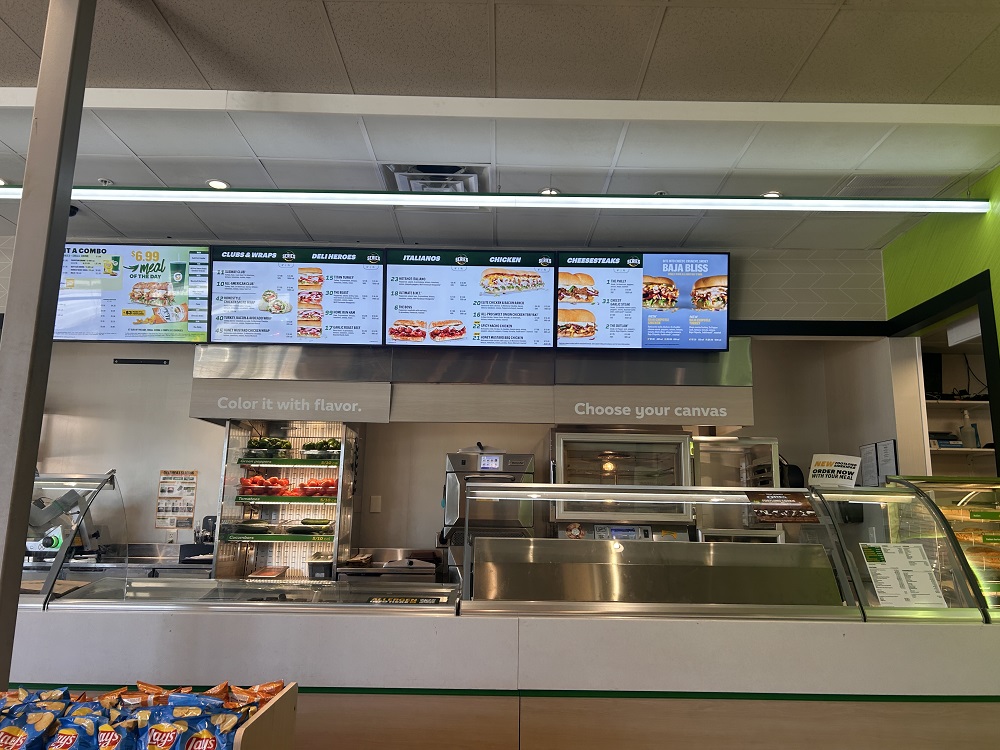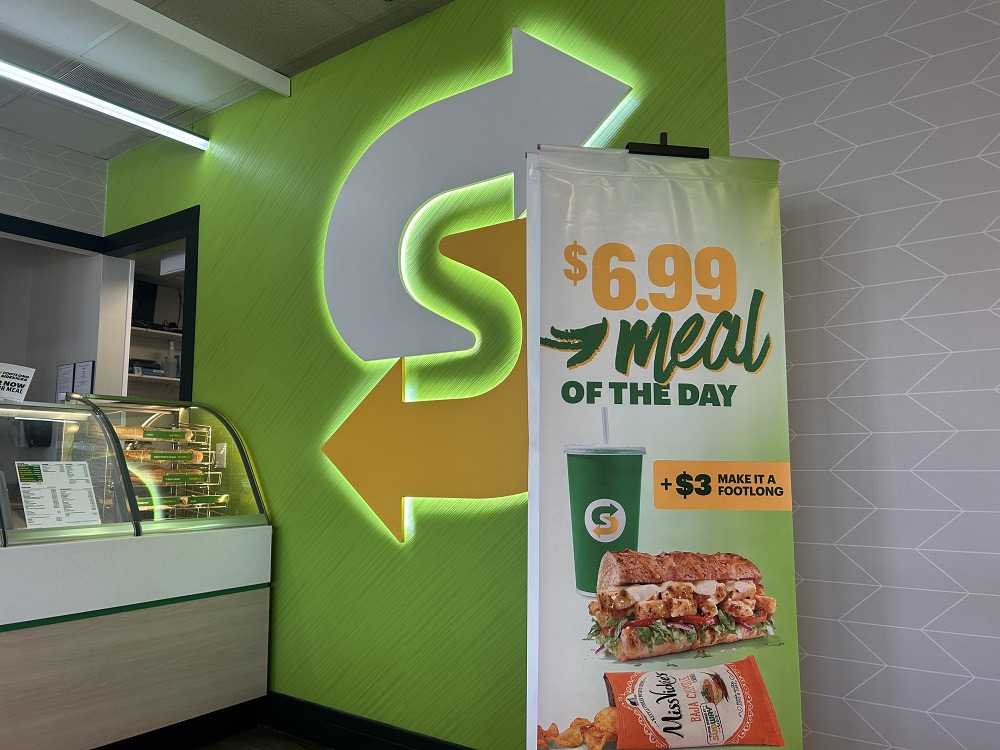Subway Franchise for Sale
Investing in a Subway NNN (Triple Net) property can be an attractive opportunity for investors seeking commercial real estate with passive income and stable returns. As one of the largest fast-food franchises in the world, Subway has a well-known brand and a footprint in nearly every U.S. city and town. But like any real estate investment, buying a Subway triple net lease property has both advantages and potential drawbacks.
In this article, we’ll explore the key pros and cons of owning a Subway single-tenant investment-grade NNN property, helping you decide if this a good investment that aligns with your goals—especially if you’re considering it as an investment property that is part of a 1031 exchange or a long-term income strategy.
"*" indicates required fields
The Pros of Investing in a Subway NNN Property
Reliable Passive Income:
One of the biggest advantages of NNN investments is the consistent monthly income you receive. With a NNN lease, Subway pays not just rent, but also the expenses—minimizing your landlord responsibilities and operational risks.
If you’re a retiree, busy professional, or passive investor, this hands-off structure offers peace of mind and predictable cash flow.
Established National Brand:
Subway is a globally recognized brand with over 20,000 locations in the U.S. The familiarity and trust consumers have in Subway make its properties more appealing—and easier to resell when the time comes.
In many cases, the tenant is a multi-unit franchisee with strong local operations. That means you’re not dealing with an individual shop owner, but with someone who runs multiple successful Subway locations.
Affordability Compared to Other QSR Brands:
Subway NNN properties are often more affordable than other quick-service restaurants (QSRs) like Chick-fil-A, McDonald’s, or Starbucks. While those may command $2M+ price tags, a typical Subway NNN can range between $600,000 and $1.2 million, making it accessible to more investors.
This price point is ideal for someone executing a 1031 exchange with under $1 million to reinvest.
Long-Term Leases with Rent Escalations
Most Subway NNN properties come with 10–15 year leases and built-in rent escalations every 5 years or so. That means your income increases over time—helping hedge against inflation and boosting overall ROI.
Zero Landlord Responsibilities:
With a true NNN lease, Subway handles repairs, maintenance, property taxes, and insurance. You simply collect rent. No roof repairs. No clogged toilets. No headaches.
If you want truly passive income, this structure is ideal—especially if you’re investing from out of state or want to minimize involvement.

The Cons of Investing in a Subway NNN Property
Creditworthiness Depends on Franchisee:
Unlike some tenants (like Walgreens or Chase Bank) who sign corporate-backed leases, most Subway NNN properties are leased by individual franchisees, not the parent company. This means the lease is only as strong as the franchisee’s financial health.
Some franchisees may operate multiple successful stores. Others may be overleveraged or have a history of closures. Due diligence is critical—reviewing the franchisee’s background, experience, and financials can make or break your investment.
Changing Consumer Preferences:
While Subway remains a top QSR brand, it has faced stiff competition and declining market share in recent years. Consumers are shifting toward healthier, trendier, and more customizable options.
This doesn’t mean Subway is going away—but it does mean location selection is more important than ever. A high-traffic, urban location near schools or shopping centers will perform far better than a rural outpost.
Shorter Lease Terms Than Corporate Tenants:
Compared to tenants like Dollar General (15-year leases) or CVS (20–25 years), Subway properties may come with shorter lease terms, especially if it’s a second-generation location.
That increases the re-leasing risk. If the franchisee doesn’t renew, you may have to find a new tenant—or deal with vacancy and re-tenanting costs.
Always evaluate how many years remain on the lease and whether there are extension options and annual rent bumps.
Low Rent Relative to Price in Some Cases:
Because Subway NNN properties are more affordable, they may also offer lower rent returns. Cap rates can range between 5.5% and 6.5%, depending on location, lease length, and tenant strength.
If your goal is to maximize income, you might consider other NNN assets with higher cap rates (e.g., gas stations, auto parts stores). But if preservation of capital and stability are more important, Subway still performs well.
Not All NNNs Are Truly Passive:
Some Subway leases are “NNN” in name but may include landlord responsibilities like roof and structure. Be sure to read the actual lease agreement and confirm whether it’s true NNN, NN (double net), or modified gross.
An experienced broker or attorney can help review this and ensure you’re not inheriting hidden liabilities.

Is a Subway NNN Property Right for You?
Investing in a Subway NNN property can be a smart move if you’re looking for:
- Affordable, passive income
- A national tenant with brand recognition
- Minimal management or oversight
- A 1031 exchange replacement in the $600K–$1.2M range
However, it’s not the right fit if:
- You want corporate-guaranteed leases
- You’re unwilling to take franchisee risk
- You’re looking for higher cap rates or development upside
Final Thoughts
Subway NNN properties occupy a unique niche in the net lease market: affordable, recognizable, and relatively hands-off—but they come with some caveats around lease structure and tenant strength.
As with any real estate investment, due diligence is key. Look closely at the lease terms, tenant financials, location demographics, and lease remaining term. And if possible, work with a broker who specializes in NNN deals to help you identify the strongest opportunities.
If you’re coming out of a 1031 exchange or looking to diversify your portfolio with passive income-producing real estate, a Subway NNN could be a solid, stable addition.
If you have any questions around NNN properties for sale, feel free to fill out that form on the homepage!

